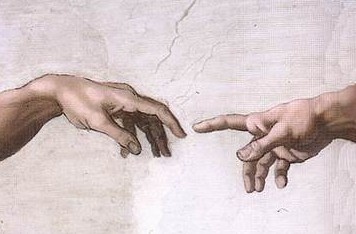
How to understand the “Two Natures of Christ”? That’s the wrong question.
- October 13, 2015
- / Category 1 Corinthians 7, 2 Corinthians 5, Colossians 1, Research, Romans 5
- / Posted By Kevin Bennett
- / No Comments.
Contents
The “Two Natures of Christ”
 The first generation of Christians had no trouble understanding that Jesus was human, and that he was also divine. Arguments only arose subsequently, when the theologians had stopped asking the right questions.
The first generation of Christians had no trouble understanding that Jesus was human, and that he was also divine. Arguments only arose subsequently, when the theologians had stopped asking the right questions.
What is the controversy?
Without labouring the (in any case erroneous) point, people have argued about this subject in a few specific ways, broadly taking positions such as follows:
- Jesus was completely human and not in any way divine
- Jesus was God, and not actually incarnate at all but a spirit – an illusion of flesh and blood
- Jesus had a human body but a divine soul (whatever that means)
- Jesus really is two people, one human and one divine, at the same time
At various times the church has made pronouncements in an attempt to clarify how the church approaches this, essentially declaring that the “two natures” of Christ are united in one, somehow. They even invented a term which had, it should be noted, been completely unnecessary in the Bible, to describe it: “hypostatic union“.
What if we’re asking the wrong questions?
 In response to a similarly frustrating set of traditional controversies, also which gave rise to the invention of new words, I recently wrote this article explaining why the first generation of Christians did not need words like “consubstantial” or “homoousious” to explain how it is that Jesus can be said at the same time both to be separate from and also one with the Father. It is because later commentators were approaching the matter from a completely different angle.
In response to a similarly frustrating set of traditional controversies, also which gave rise to the invention of new words, I recently wrote this article explaining why the first generation of Christians did not need words like “consubstantial” or “homoousious” to explain how it is that Jesus can be said at the same time both to be separate from and also one with the Father. It is because later commentators were approaching the matter from a completely different angle.
 I also wrote another article in an attempt to cut through the confusion and incomprehension that surrounds Jesus’ claim to be the son of God, the misunderstanding of which has had such far reaching implications as to be a key polemic in the religion of Islam, founded by Mohammad in the 7th Century. Mohammad had been taught, in some form, the traditional Christian ideas about this, rather than what I argue is the meaning Jesus was expounding in his own words.
I also wrote another article in an attempt to cut through the confusion and incomprehension that surrounds Jesus’ claim to be the son of God, the misunderstanding of which has had such far reaching implications as to be a key polemic in the religion of Islam, founded by Mohammad in the 7th Century. Mohammad had been taught, in some form, the traditional Christian ideas about this, rather than what I argue is the meaning Jesus was expounding in his own words.
So then, this blog post forms another attempt to clarify what should have been clear from the beginning, but has been muddied by millennia of erroneous contemplation.
I propose that, as with the other issues, we are once again asking the wrong questions.
What is the right question?
Here is a list of some valid questions and their answers:
- Was Jesus in some way divine?
- Yes
- Was Jesus a real man?
- Yes
- Did Jesus have the nature of a man?
- Yes
- Did Jesus have the nature of God?
- Yes
So far so good. The next question is the key one, because people (theologians) have been asking all sorts of unhelpful questions, based on a false premise, for at least 1500 years. The premise is the key. Let’s ask the right question as follows:
How can this be so?
Ok. Now in this question we are bringing no assumptions to the table. There is no premise. We are simply asking how this list of four answers can be reconciled together.
What is the answer?
The answer, at least the premise of the answer, is this:
What you previously thought about the nature of God, and the nature of humanity, was flawed.
That’s actually the appropriate premise under which to consider what Jesus represents in the grand drama of God’s great story, and of humanity’s journey in it, because the revelation of Jesus subverts the categories under which God and humanity had been contemplated.
Hopefully this makes it clear why it is then so disastrous to use those very categories as the axioms by which to define Jesus! No wonder the result is, essentially, not reconcilable.
The fuller correct answer, which presupposes the premise above, is:
Humanity was created in the image and likeness of God. Jesus is the phenomenon that forces us to concede that God was never entirely different from humanity in the first place, and that ultimately, humanity forms part of the answer to the universal question “what-or-whom-is-God?”.
Does that sound shocking? It should.
This is what the first Christians were saying. This is the scandal for which the Jews were hunting them out. This is the central argument of Christianity: that God and humanity are, in some essential way, and as demonstrated in the whole Jesus sequence, not actually completely distinct concepts from one another. Humanity is, in the words of the apostle, “reconciled with God” (Romans 5:10; 1 Corinthians 7:11; 2 Corinthians 5:18-20; Colossians 1:22) through Jesus’ ministry. This “reconciliation” is a joining together of things that had been torn apart. Humanity is being joined with God through [the person of] Christ.
Once we understand this, whole passages on Scripture start to suddenly make more sense. Passages like this, which primarily is talking about Jews and Gentiles, but then talks about the two groups combined, and what it means to be reconciled to God:
He has abolished the law with its commandments and ordinances, that he might create in himself one new humanity in place of the two, thus making peace, and might reconcile both groups to God in one body through the cross, thus putting to death that hostility through it. So he came and proclaimed peace to you who were far off and peace to those who were near; for through him both of us have access in one Spirit to the Father. So then you are no longer strangers and aliens, but you are citizens with the saints and also members of the household of God, built upon the foundation of the apostles and prophets, with Christ Jesus himself as the cornerstone. In him the whole structure is joined together and grows into a holy temple in the Lord; in whom you also are built together spiritually into a dwelling place for God.
– Ephesians 2:15-22
… and this theological bombshell has been obscured endlessly by those who assume the wrong premise, and then try to reconcile the irreconcilable, eventually retreating to a position of self-professed ignorance when pressed. In the attempt they invent strange new jargon, and generally just inflate the size of theological textbooks at the expense of common sense.
We need to stop trying to figure out how it is that Jesus has “two natures”, and start being amazed at this scandal:
That in Jesus,
the human condition has been revealed to be,
in some critically vital way,
part of the fullest understanding of what the nature of God actually is.
I pray that you may have the power to comprehend, with all the saints, what is the breadth and length and height and depth, and to know the love of Christ that surpasses knowledge, so that you may be filled with all the fullness of God.
Now to him who by the power at work within us is able to accomplish abundantly far more than all we can ask or imagine, to him be glory in the church and in Christ Jesus to all generations, forever and ever. Amen.
– Ephesisans 3:18-21
Related
facebook comments:
Recent Posts
- Addiction: How to Help
- … and this just in: News from the Streets of Ipswich. Issue 23
- What Happens When We Die, and Where are my Loved Ones?
- Seeking the Kingdom
- If it is by the Spirit of God that I drive out demons, then the Kingdom of God has come upon you – Matt 12:28
Tags
| S | M | T | W | T | F | S |
|---|---|---|---|---|---|---|
| « May | ||||||
| 1 | 2 | 3 | 4 | 5 | 6 | |
| 7 | 8 | 9 | 10 | 11 | 12 | 13 |
| 14 | 15 | 16 | 17 | 18 | 19 | 20 |
| 21 | 22 | 23 | 24 | 25 | 26 | 27 |
| 28 | 29 | 30 | ||||



